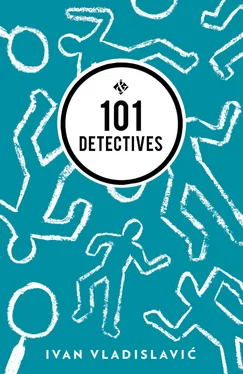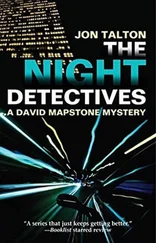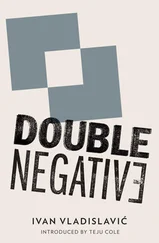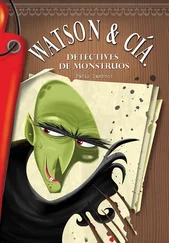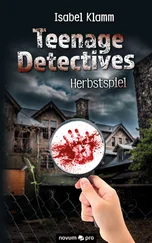Ivan Vladislavic - 101 Detectives
Здесь есть возможность читать онлайн «Ivan Vladislavic - 101 Detectives» весь текст электронной книги совершенно бесплатно (целиком полную версию без сокращений). В некоторых случаях можно слушать аудио, скачать через торрент в формате fb2 и присутствует краткое содержание. Год выпуска: 2015, Издательство: And Other Stories Publishing, Жанр: Современная проза, на английском языке. Описание произведения, (предисловие) а так же отзывы посетителей доступны на портале библиотеки ЛибКат.
- Название:101 Detectives
- Автор:
- Издательство:And Other Stories Publishing
- Жанр:
- Год:2015
- ISBN:нет данных
- Рейтинг книги:4 / 5. Голосов: 1
-
Избранное:Добавить в избранное
- Отзывы:
-
Ваша оценка:
- 80
- 1
- 2
- 3
- 4
- 5
101 Detectives: краткое содержание, описание и аннотация
Предлагаем к чтению аннотацию, описание, краткое содержание или предисловие (зависит от того, что написал сам автор книги «101 Detectives»). Если вы не нашли необходимую информацию о книге — напишите в комментариях, мы постараемся отыскать её.
and
, invites readers to do some detective work of their own. Each story can be read as a story, but many hide clues and patterns. Whether skewering extreme marketing techniques or constructing dystopian parallel universes, Vladislavic will make you look beyond appearances.
101 Detectives — читать онлайн бесплатно полную книгу (весь текст) целиком
Ниже представлен текст книги, разбитый по страницам. Система сохранения места последней прочитанной страницы, позволяет с удобством читать онлайн бесплатно книгу «101 Detectives», без необходимости каждый раз заново искать на чём Вы остановились. Поставьте закладку, и сможете в любой момент перейти на страницу, на которой закончили чтение.
Интервал:
Закладка:
With the exception of a young man towards the back of the room, who had come here with a new girlfriend to demonstrate the sincerity of his interest in her interests, every member of the audience had been to a literary reading before. A majority had been to a dozen readings or more, and a handful to hundreds. Among them, they had seen and heard thousands of writers read from their work. By the time Maryam Akello reached the bottom of the first page and peeled it over on the lectern, and while the less experienced listeners were still absorbing her tones and gestures, examining her clothes, her face and the complicated weave of her hairstyle, the old hands had already found a place for her on the shelf.
In general, they found writers easier to classify than their books. For all the variation, from the studied sing-song of American poets and booming declamations of African praise singers to the weather-report burble of certain English novelists, they fell into two broad classes: those who were at ease on the stage and those who were not. Those who gestured and projected and gave their characters accents and mannerisms, and those who simply read in their own voices, as well as they could, until it was over.The performers and the rest. Yet it was not obvious who the crowd-pleasers would be. Melodrama was always an ill-judged grimace away and some of the whisperers and mumblers made you sit up and listen.
Prompted by Akello’s floury monotone, Prof. Steffi Ziegler was dwelling on these things. The professor, who lectured in twentieth-century American theatre at the University of Cologne, found herself thinking about Edward Sheldon, an all-but-forgotten playwright. She had been browsing lately through Eric Barnes’s biography of Sheldon, The Man Who Lived Twice , and a wisp of the story was still drifting in her mind.
Like many lives touched by catastrophe, Sheldon’s fell open into two unequal chapters. In the first decade of the twentieth century, he had established himself, precociously, as one of the stars of the American theatre. His play Romance became the stage sensation of the war years, running for season after season on Broadway, touring everywhere, going on to record-breaking runs in London and Paris. But when he was still in his twenties, he was struck down by a virulent form of arthritis, which rendered him immobile. By 1925 he was bedridden; by 1930 he was blind.
Sheldon spent the last twenty years of his life flat on his back in his Manhattan penthouse, unable to move a limb. Yet the remarkable thing is that he remained at the centre of the theatre world. Despite the severity of his affliction, he sustained friendships with hundreds of people, guiding marriages and careers, offering advice on life and work, amusing and inspiring everyone he knew. His generous, resilient spirit moved one friend to remark, ‘It would have been an impertinence to pity him.’
Prof. Ziegler had written several papers on Sheldon’s troublesome plays, notably The Nigger and The Princess Zim-Zim , troublesome because, despite their audacity and charm, they were disfigured by the prejudices of his time. But these concerns belonged in her scholarly work. She was musing now on the question of reading aloud. After he went blind, one of Sheldon’s main pastimes was being read to. He slept little and fitfully, and every waking moment, night or day, when he was not receiving a visitor, was passed reading. Even his night nurses had to be accomplished readers and he had very specific requirements in this regard. He did not enjoy expressive reading at all. He favoured a blank monotone that allowed him to apply his own emphases, like tints on a black-and-white photograph, ‘as though he were receiving the words directly from the printed page’, as his biographer puts it. This he called the ‘sewing machine’ style of reading, a precise, regular tacking along the lines of type, seaming one imagination to another.
Maryam Akello was that kind of reader, Prof. Ziegler thought. But without knowledge of the language, it was impossible to add a single bright thread of your own to her white linen. In fact — and at this thought Prof. Ziegler made a small, surprised sound that irritated the woman next to her — you could not even be sure it was linen. Or white.
Akello came to the end of another page — her book had yet to be published in Acholi and she was reading from a typescript — turned it over and flowed on. Shutting her eyes, Prof. Ziegler concentrated on the stream of sound. She could almost feel the little beads of it striking her eyelids. Not a sewing machine, she decided, but a more robust contraption, a planter perhaps, scattering seeds onto the harrowed earth.
By now, many of the listeners had decided that Maryam Akello was not a good reader, but their attention did not waver. Listening, like reading aloud, is an art. The silence was more than polite: it expressed the general feeling of the audience that Sugar was a good book. This was largely thanks to Horst Grundmann, whose article some of them had read in Die Zeit the week before, publicising the reading and the series it inaugurated. All of them, with the exception of a student who had arrived late and was leaning against the wall at the back beside the TV camera, had also just heard Prof. Grundmann’s introductory speech and so they had some idea what the reading might be about even if they did not understand. Having first set out the aims of the Writers under Fire initiative, and thanked the partner organisations and sponsors in the city government and the private sector, he had gone on to tell how Akello and her sister had been abducted from a village in northern Uganda by the Lord’s Resistance Army and carried off into slavery in Sudan. After much suffering, she had miraculously escaped and ended up in the refugee camp at Koboko, only for this place of apparent refuge to come under attack by rebels. Once again, she was lucky to escape with her life. With the help of Christian missionaries, she had reached the United States, which she now regarded as her home. Sugar , published there with the support of UNESCO, had been an unexpected success. It was unusual, Prof. Grundmann said, for such a dark story to become a bestseller, but no one who read it could fail to be moved by the spirit of the writer, which was bathed in light. The German translation by Hans Günther Basch, one of the finest practitioners in the field, was the fourth foreign-language edition, and half a dozen more were on the cards.
Throughout Grundmann’s speech, Akello had sat immobile. She understood no German, and there was no simultaneous translation this evening, but she had a notion of what her host was saying because he had thoughtfully sent her the gist of his speech in an email. Although her face appeared open and frank, it was turned slightly to one side and her gaze was averted, as if she were watching something in the corner of her eye. It seemed to several people on the opposite side of the auditorium, including a young poet in the fourth row from the front, that her heavy-lidded eyes were actually closed.
Behind the lectern she appeared to be even smaller than she was, scarcely more than a girl. When she reached for the microphone it shrieked and she pulled away as if a placid dog had snapped at her. A technician, crouching so that he would not obscure the view of the audience or the cameraman even for a moment, slipped in from one side, expertly adjusted the stand to bring the mic close to her mouth, and slipped away.
Prof. Ziegler, who had spoken briefly to Akello in the lobby fifteen minutes earlier, and twenty other members of the audience who had heard her being interviewed on the radio the day before, expected her to say a few words in English. In fact, she had intended to read from the English translation. But when they’d met in the café of the Literaturhaus to discuss the order of proceedings, Prof. Grundmann proposed that she read in Acholi instead and Hans Günther supported him. It was an opportunity for her to use her own language, they said, to speak in her own voice. It was important for the audience too, hearing the cadences of the original would open their minds to another world. She would be free to speak English afterwards, of course, when she took questions from the floor. Nearly everyone in Germany spoke English. So now, once the microphone had been adjusted, she simply tapped her typescript on the top of the lectern, producing two discreet hammer blows that called the gathering to order, set the pages down and began to read.
Читать дальшеИнтервал:
Закладка:
Похожие книги на «101 Detectives»
Представляем Вашему вниманию похожие книги на «101 Detectives» списком для выбора. Мы отобрали схожую по названию и смыслу литературу в надежде предоставить читателям больше вариантов отыскать новые, интересные, ещё непрочитанные произведения.
Обсуждение, отзывы о книге «101 Detectives» и просто собственные мнения читателей. Оставьте ваши комментарии, напишите, что Вы думаете о произведении, его смысле или главных героях. Укажите что конкретно понравилось, а что нет, и почему Вы так считаете.
